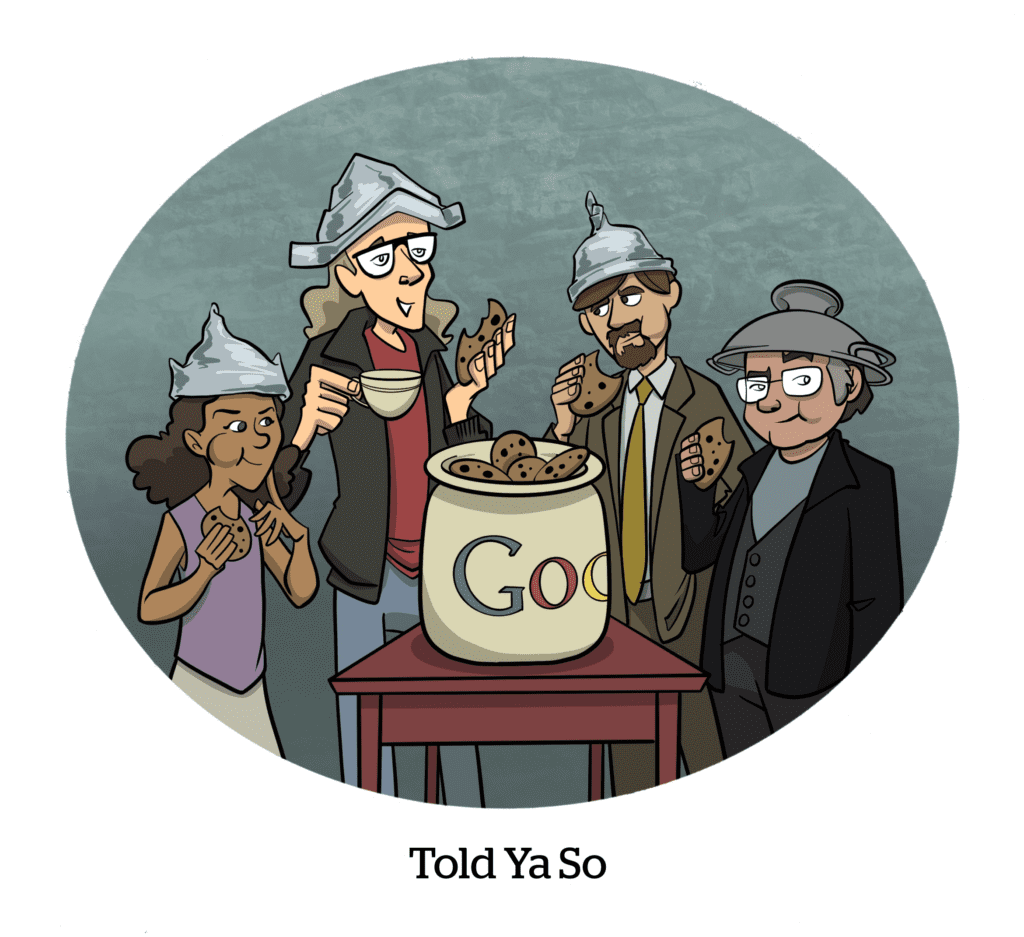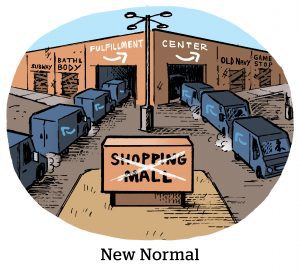Damned if you deprecate, damned if you don’t.
In July, after four years of Sturm und Drang, Google announced it was abandoning its plan to deprecate third-party cookies in Chrome. Instead, Google said it will launch a user choice mechanism in its browser.
But it’s been more than two months now, and Google hasn’t shared any further information. What will the mechanism look like? How will it function? Will it be an opt-in or an opt-out? Where will it live in the browser, and what language will users be presented with?
This lack of transparency is yet another example of Google wielding its market dominance, said Davide Rosamilia, VP of product at alternative identity provider ID5.
Staying in the sandbox
ID5 is one of the many companies that shared feedback with the UK’s Competition and Markets Authority (CMA) over the summer in response to the regulator’s call for comments on Google’s new approach, including how it might impact the digital advertising market.
The CMA has been supervising development of the Privacy Sandbox since 2022 to make sure the APIs wouldn’t give Google an advantage over competitors after Chrome removed third-party cookies.
As part of the CMA’s oversight, Google had committed to not deprecating third-party cookies without the CMA’s go-ahead – which raised the question of whether the CMA would remain involved with the Privacy Sandbox after Chrome’s “yeah, nevermind” announcement.
“From our perspective,” Rosamilla said, “the regulator’s job is not over until there’s a clear understanding of what Google is going to do.”
And the CMA agrees.
Last week, the CMA posted an update on its website to say it still has competition concerns about Google’s revised approach and it wants Google to update its commitments to reflect those concerns. If Google’s changes don’t satisfy the CMA, then it “will consider what further action may be necessary.”
The CMA’s goal is to get all of that sorted before the end of the year.
According to a Google spokesperson, Google is “engaging with the CMA” and will “continue to consult” with regulators globally. The spokesperson also said Google believes its new approach supports competition, but that the company can’t speak to its ongoing conversations with regulators. Google will share more once those discussions have concluded.
ATT all over again?
It makes sense, though, that the CMA is maintaining its authority over what happens in the Privacy Sandbox.
Google’s commitments aside, European regulators have newly enhanced powers through the recently enacted Digital Markets Act, which gives them more authority over Big Tech “gatekeeper” companies, including Google, Amazon, Apple and Meta.
And depending on how the still-nebulous user choice mechanism in Chrome is designed, it could disintermediate the direct relationship between publishers and their audiences in favor of Google, Rosamilia said.
“The way that the message is conveyed is very important,” he said. “We saw the same thing happen with Apple’s ATT.”
Last year, the French competition authority took another step forward in its investigation into whether Apple’s AppTrackingTransparency (ATT) framework is an abuse of Apple’s “dominant position by implementing discriminatory, non-objective and non-transparent conditions as regards the data mining of user data for advertising purposes.”
Following Google’s just-kidding-about-deprecation announcement in July, many industry observers immediately drew a comparison between ATT and the TBD user controls in Chrome.
Priorities, priorities
Meanwhile, the line between privacy protection and competition policy is getting blurrier by the day, which creates tension between regulatory authorities.
The fate of third-party cookies is a perfect example.
Competition regulators care about fairness. As long as Google’s user choice mechanism is transparent and nondiscriminatory, third-party cookies are pretty much fine with them.
But data protection regulators feel differently.
The Information Commissioner’s Office (ICO) – the UK’s data protection authority and privacy regulator – has expressed disappointment that Google no longer plans to remove third-party cookies. In the words of the ICO’s deputy commissioner, Stephen Bonner, getting rid of third-party cookies “would be a positive step for consumers.”
So you’ve got to wonder what the end game is with data protection and competition regulators seemingly working at cross purposes.
Well, at least one thing’s certain: The third-party cookie saga continues.
🙏 Thanks for reading! And shana tova to all who celebrate, including this lil guy with his lil apple. As always, feel free to drop me a line at [email protected] with any comments or feedback.
















